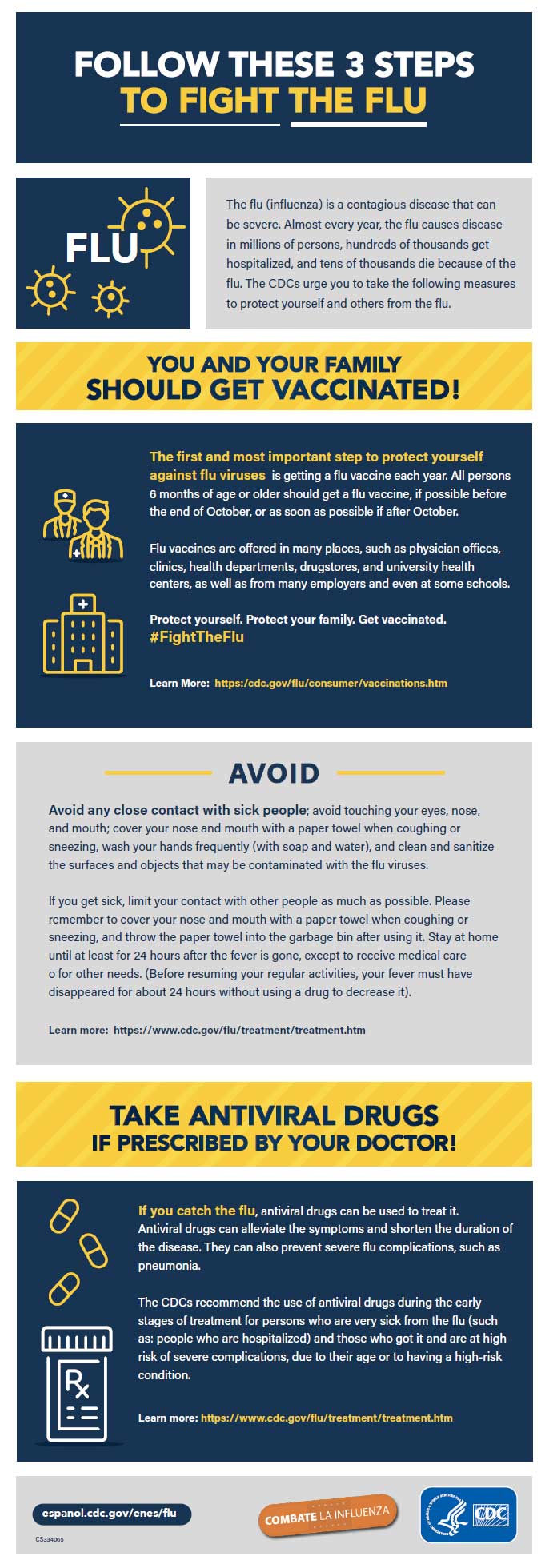
Click the Flu Shot Consent Form above to complete. Forms will also be available at clinic location. Completed paperwork can be printed out and brought with you to your appointment. All flu shots are by appointment-only for adults and children 6 months and older. Call 740-399-8008 to schedule.
Medicaid, Medicare and most forms of insurance will be accepted for payment. Otherwise, the cost is $35 and can be paid in cash or by check (made out to Knox Public Health). Attendees will need to bring ID and medical/insurance card.
What is Seasonal Influenza?
Seasonal influenza, also known as the flu, is an illness that causes fever, headache, tiredness, cough, sore throat, nasal congestion and body aches. It is usually spread from person to person by coughing and sneezing. Flu season in Ohio can begin as early as October and run as late as March. However, it is not uncommon for sporadic cases to appear all year long.
Most people who get the flu usually recover in one to two weeks, but the flu can be deadly. An estimated 200,000 people are hospitalized with the flu each year in the U.S. On average, there are more than 20,000 flu related deaths – many of which could have been prevented with a flu vaccine.
Flu vaccines are designed to protect against the influenza viruses that experts predict will be the most common during the upcoming season. There are three kinds of influenza viruses commonly circulate among people today which include: Influenza A (H1N1) viruses, Influenza A (H3N2) viruses, and Influenza B viruses. Each year, these viruses are used to produce seasonal influenza vaccine.
Who Should Get a Flu Shot?
Centers for Disease Control and Prevention’s (CDC) vaccine experts are again this year recommending that everyone six months and older should get a flu shot each year.
While everyone should get a flu vaccine each flu season, it’s especially important the following groups get vaccinated either because they are at high risk of having serious flu-related complications or because they live with or care for people at high risk for developing flu-related complications:
- Pregnant women
- Children younger than 5, but especially children younger than 2 years old
- People 65 years of age and older
- People of any age with certain chronic medical conditions
- People who live in nursing homes and other long-term care facilities
-
People who live with or care for those at high risk for complications from flu, including:
- Household contacts and caregivers of children younger than 5 years of age with particular emphasis on vaccinating contacts of children younger than 6 months of age (children younger than 6 months are at highest risk of flu-related complications but are too young to get vaccinated)
- Health care workers
- Household contacts of persons at high risk for complications from the flu
